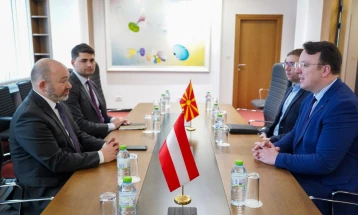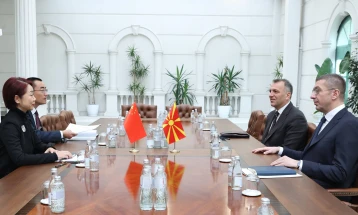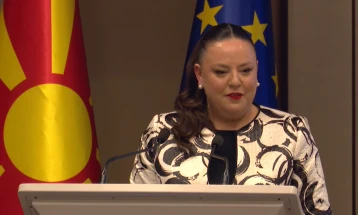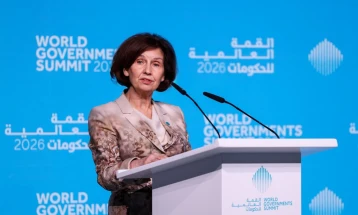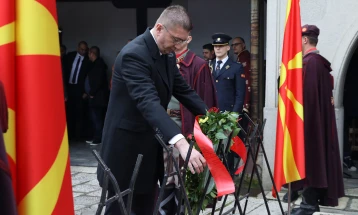WIIW: EU needs new Western Balkans strategy
- Post By Magdalena Reed
- 15:11, 4 October, 2021
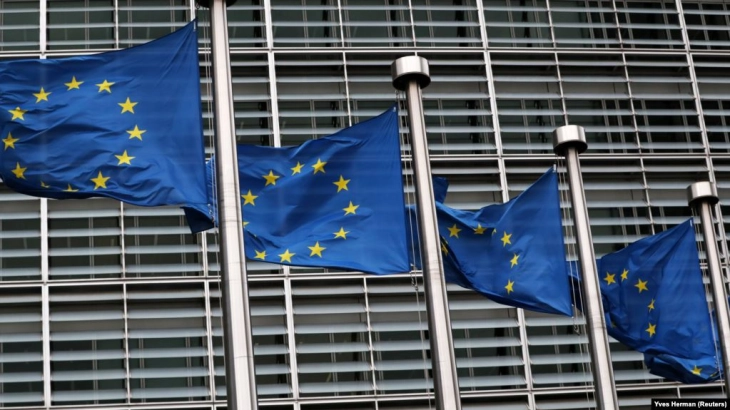
Skopje, 4 October 2021 (MIA) — Ahead of the third EU–Western Balkans Summit on Oct. 6, the Vienna Institute for International Economic Studies (WIIW) has released a study saying the EU's new EUR 9bn economic and investment plan for the Western Balkans supposed to attract billions of euros in private investment is ‘more of the same’ instead of a paradigm shift. Closer EU ties are necessary for the region to catch up, according to the WIIW on Monday.
"This is expedient optimism. The promised economic package will do little to change the deplorable economic situation in the Western Balkans, but will bring ‘more of the same’ instead," Richard Grieveson, co-author of the study with the Bertelsmann Stiftung on the subject and deputy director of WIIW, is cited as saying in the WIIW press release.
As much as the EU's plan to stimulate greener economies and digitization is to be welcomed, this has not worked in the past, he warned.
And according to Stefani Weiss, EU expert at the Bertelsmann Stiftung in Brussels, the EU's previous strategy of using regional economic integration to push the economic catching-up process of the Western Balkan states and resolve political conflicts has not been successful.
As the study by WIIW and the Bertelsmann Stiftung shows, Albania, Bosnia and Herzegovina, Kosovo, Montenegro, North Macedonia, and Serbia are lagging far behind the Eastern and South-Eastern European EU members in economic terms.
At the same time, the legacy of the Yugoslav disintegration wars continues to weigh heavily on their relations. "Serbia, as an economic and political heavyweight in the region, plays a key role in every respect," Grieveson said.
Although regional integration has increased, it has not had much impact on economic development. "The region's GDP is still very low – about the same as Slovakia's overall. So the potential gains from increased regional trade have hardly materialized’, he added.
This leads to a large economic gap. GDP per capita in the Western Balkans is only 20-40% of the German level and thus far below that of most Eastern European EU members. Even the stabilization and association agreements with the EU could do little to change this, the WIIW press release says.
In about 20 years, exports to the EU increased 2 by less than a quarter. Foreign direct investment (FDI) from the EU increased by about 46% in the same period – "a very modest value, compared to the leap in FDI from the EU in Poland, Czechia, Slovakia or Hungary before they joined the EU. So we can hardly speak of a catching-up process so far, even if there are signs of near-shoring in the direction of the Western Balkans," Grieveson said.
Successes in infrastructure have also been modest. The Western Balkan states have been successfully connected to the trans-European transport and energy networks. But there are still large gaps, not least in the area of high-speed internet. China’s announced infrastructure investments in the region amounting to around EUR 7bn may create economic dependencies – "See Montenegro," said Weiss – and weaken the influence of the EU. "That should give food for thought," she added.
In order to promote the economic development of the Western Balkans, the study recommends the deepest possible economic integration with the EU. "Precisely because full accession is becoming increasingly distant for most of them for political reasons, Brussels must offer them an alternative," Weiss said.
Opening the cohesion and structural funds, as well as other EU financial instruments, to the Western Balkan states would be one possibility.
Given their low economic output of less than 1% of the EU's gross domestic product, this would hardly make a difference for the net contributors. Integration into the EU Customs Union and an expansion of the existing stabilization and association agreements also seem sensible to the study authors.
"But if the EU really wants to integrate the Western Balkans more, it needs to think much harder about how to change the calculus of Serbia, the main player in the region. Support for EU accession is much lower there than in the other countries," Weiss said.
She noted that ultimately the EU has to make a very simple geopolitical choice: "Does it really want to integrate the Western Balkans or continue to have it as a contested zone on its doorstep where Russia and China also exert their influence?"
The study, titled "Pushing on a string? An evaluation of regional economic cooperation in the Western Balkans" was prepared by the Vienna Institute for International Economic Studies (WIIW) and the Bertelsmann Stiftung.
WIIW is an economic think tank that has been producing economic analyses and forecasts for countries in Central, East and South-East Europe for almost 50 years. mr/


